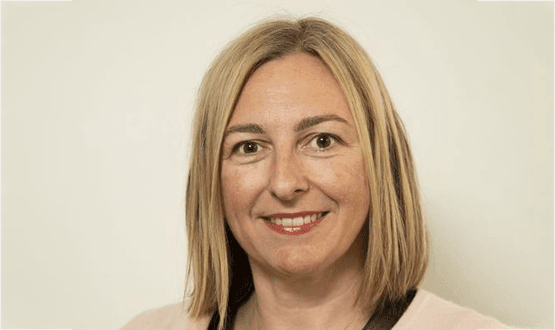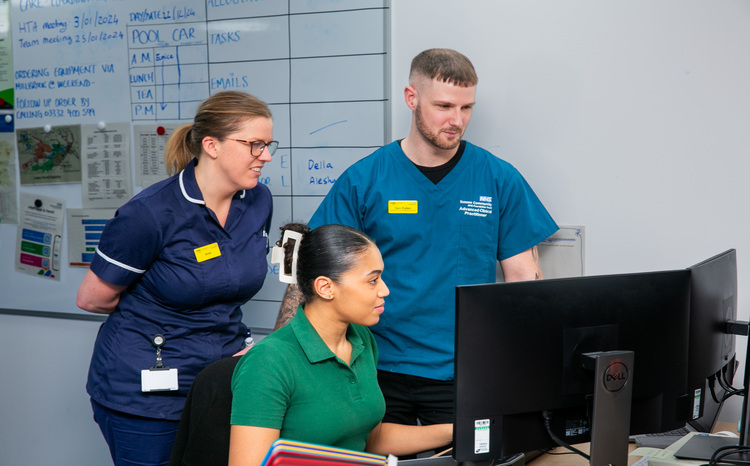International Nurses Day: Natasha Phillips reveals her ambitions for NHSX
- 12 May 2020

As with any profession in healthcare, nursing has changed substantially as digital solutions become commonplace, and as the first national Chief Nursing Information Officer takes up her post this week it’s set to continue evolving. To mark International Nurses Day, Digital Health News spoke to Natasha Phillips about the future of nursing.
A nurse of 26 years, Natasha has seen myriad changes during her career. The Chief Nursing Information Officer (CNIO) at University College London Hospitals NHS Foundation Trust (UCLH) was named NHSX’s first CNIO in February and officially took up her post on 11 May.
Her first point of business? Identifying who the digital champions are and bringing together networks of nurses interesting in digital with the aim of eventually getting a CNIO in every organisation.
“My ambitions for the Long Term Plan and the nursing contribution there are that we move patient care out from hospitals as much as we can, have much less outpatient appointments, have much clearer integrated care for patients and to really encourage active participants,” she tells Digital Health News.
“Nursing is about function, it’s not about disease, so we help people to live their best lives. We have nurses working across all across the continuum from the social care sector to primary care to secondary care, adults, children, mental health, and actually all of those nurses have a unique relationship with their patients that mean they’re able to identify the technologies that will be most supportive.”
Inclusion in the decision-making process is vital, Natasha says, as nurses know what will work for them and their patients. As is encouraging digital nurses to bring other nurses along on the journey.
“Every organisation needs a nurse at the executive table talking about digital. Every chief nurse in every organisation should know is their nurse who knows digital and how often are they meeting with them to learn how digital can help,” she says.
“I would like us to say that there’s a CNIO in every organisation, I don’t think that’s unrealistic and I think it’s absolutely necessary.
“But if we’re going to say that we need to be very clear about role description and the knowledge and skills that are necessary for people to have.”
The move towards digital nurses in every organisation is reliant on support for those wanting to become a CNIO, Natasha explains.
For example, nurses are poorly represented on the Digital Academy, she says, adding that she plans to work with organisations to ensure the right training is available to encourage nurses to go digital.
“That way nurses can then use their voice in a much more powerful way and have a clear plan on what they are each doing in their area to ensure that nursing care using technology to best effect.”
Natasha knows first-hand the benefit of having a digital nursing expert involved in a trust’s decision making. The Digital Health CNIO of the Year in 2019 has drawn commendation from colleagues for her work on UCLH’s electronic patient record (EPR) programme, which saw UCLH become the second NHS trust to go live with a records system from US supplier Epic.
The go-live saw nursing at the trust change within 24-hours, from a system requiring nurses to manually write notes to one with integrated digital technologies and observations on handheld devices.
A change Natasha says would not have been as smooth without a nurses input, highlighting again the importance of CNIOs.
Friendly advice
To nurses thinking about taking a digital career path, with the aim of becoming a CNIO, Natasha says to view it as a speciality and to take the opportunities to learn from others.
“Bring your basic nursing knowledge and enhance it with a new type of knowledge which would be the digital side of things,” she says.
“If they’re going to do that, look at what knowledge and skills you need and where you’re going to get it. Develop a really good professional development plan, join networks and find opportunities for learning from others.
“I hope that in three years from now that it will all be laid out for them so it’s obvious, but for now people are just having to make it up for themselves. I’d like to think we will have access to the right practice, funding and education so that they can become nurses who are specialists in digital information.”
Going digital
Reflecting back on her career Natasha has seen nursing change from a profession with very little in the way of enabling technologies, to one that has embraced technology.
“During my practice much has changed, and we moved to digital thermometers, machines to do vital signs, integrated patient monitors and ventilators on the ICU. We first saw electronic patient records in intensive care, and it has been too slow for that to move beyond the walls of critical care,” she says.
“There is still so much variability in the amount of technologies available to nurses despite many years of advances. For many of us we still use far more technology in our everyday lives at home than we do at work. Yet we know there are clear benefits for patients when we can use technology to support the way we care for them.
“Embracing technology is vital for the advancement of all four pillars of clinical practice; education, research, leadership and practice. Arguably digital is the fifth pillar of advanced practice.
“To accelerate the nursing contribution to digital healthcare we need a shared vision and plan and nurses with the expertise necessary to lead the profession. I hope to lead on the development of such a strategy focusing not only on the what but on the people plan necessary to deliver that what.”
On starting her new role as NHSX CNIO Natasha feels she has a responsibility to the profession to advance its capabilities.
“Florence Nightingale wold be at the forefront of digital nursing care if she were here today, as a statistician she would be actively leading the use of big data to improve the health of the population. If I were superstitious I’d say it’s a good omen to be starting my join as CNIO at NHSX in the week of her anniversary and the year of the nurse,” she adds.
“But I am not superstitious and I know it is the vision of our Chief Nurse and digital nurse activists like the digital nurse network who have put me here. I feel a responsibility to support the profession have a voice and to advance our practice in service of our patients together.”
Natasha will be a panelist on a Digital Health webinar on Friday, May 22. The webinar will discuss the results of Digital Health Intelligence’s first survey of CNIO Network members.
It offers a chance to learn about some of the key findings of the survey, and to hear from senior nursing figures on their thoughts about what it means for where we go next.




